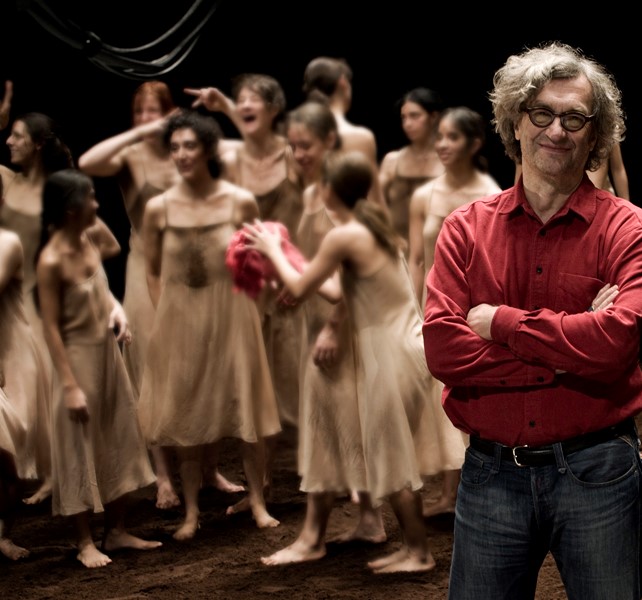Wim Wenders is the legendary director behind game-changing celluloid classics such as Wings Of Desire and Paris Texas. This month he has made a triumphant return to the big screen with Pina – an emotive elegy to his late friend Pina Bausch, the
Wim Wenders is the legendary director behind game-changing celluloid classics such as Wings Of Desire and Paris Texas. This month he has made a triumphant return to the big screen with Pina – an emotive elegy to his late friend Pina Bausch, the experimental dance choreographer credited with creating modern dance. Featuring performances from the troupe of dancers whose lives she transformed, this stunning visual experience takes you deep inside her set pieces in three-dimensional splendour, creating an arena in which you truly feel the emotional language of dance. The radical choreographer’s lifelong motto was the evocative phrase “dance, dance… or we are lost”. Here, the director divulges the genesis of that sentiment and its poignant significance to John-Paul Pryor.
Win Wenders: “Pina told this story only a couple of times, and it’s the only time she ever really talked about her life in a biographical sense. It was when she got Kyoto prize in Japan, which is a very big award. That was the only time I remember her actually speaking about her life and her childhood, and how she discovered dance... In that speech one little incident has a very, very important place. It was the very beginning of Pina’s career and she was in Greece on an island where there was a gypsy village, and the gypsies dancing for their guests. Pina said she didn’t want to dance along with them, she just wanted to watch them, but this little girl came up to her and in broken English she said, “Dance, dance... or we are lost...” Pina said that the child took her by the hand and drew her into the circle. She said it was big for her that she danced with them, and those words became the motto of Pina’s life. She really believed that with dance you could confront life and all sorts of issues: life and death. She believed that dance had a healing power and that dance was a response to all sorts of things – a wordless response, of course... You have to know where Pina is from to really understand, because Pina spoke the equivalent of a cockney accent of her area – one that you cannot express intellectual things with, but that you can say everyday things with. It’s a wonderful language for jokes and laughter but it’s not a language to be intellectual with... Pina was always the opposite of an intellectual. She had to find a different way to release ideas and collect ideas and she did that through dance. I can't say it is true about dance in general that it has this power, because I still have a lot of reservations about dance where it’s mainly an aesthetic experience. Pina reversed that so much though, and she was so radical in her reversal that her work still really stands apart.”
Pina is in UK cinemas now. Wim Wenders: Places, strange and quiet runs at Haunch of Venison until 14 May 2011.
Text by John-Paul Pryor
